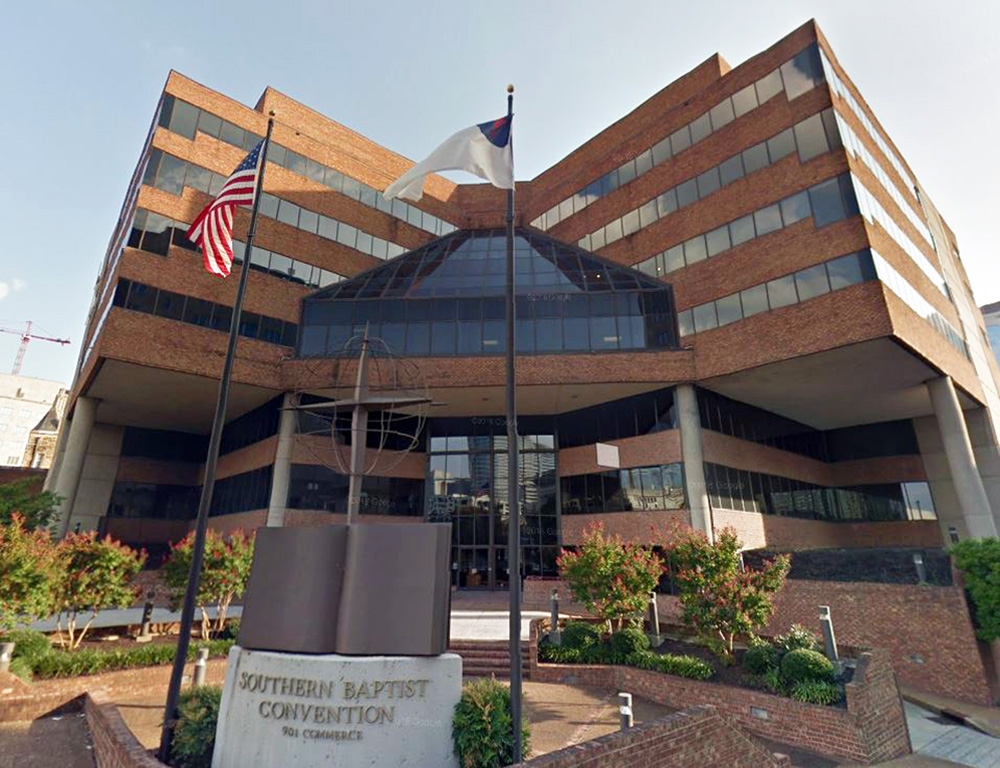
FARMERSVILLE, Texas (BP) — In a lengthy and contrite blog post, Southern Baptist Convention President Bart Barber reasserted his commitment to sexual abuse reform in the Southern Baptist Convention while explaining that he was among those who approved the SBC’s signing on to a controversial amicus brief in August 2022.
“This is my doing. I approved it. I take full responsibility for the SBC’s having joined this brief, and this lengthy statement will help to explain the mistakes I think I have made,” he wrote at his blog Monday (Oct. 30), Praisegod Barebones.
The amicus brief, which addresses a case of sexual abuse in Kentucky, was filed alongside Lifeway Christian Resources, Southern Baptist Theological Seminary and the SBC Executive Committee in relation to a Kentucky case of sexual abuse. Intense criticism followed the brief’s discovery last week, including statements from abuse survivors and Southern Baptist leaders. EC officers and the Abuse Reform Implementation Task Force released statements on Friday.
In looking through emails over the weekend, Barber said he came across one from Aug. 9, 2022. He was in Nashville at the time as part of the orientation for new Executive Committee members. He was also responding to criticism over the Abuse Reform Implementation Task Force, named the previous day. He was preparing to inform the SBC entity leaders that the U.S. Department of Justice had opened an investigation into the SBC.
An email from the SBC’s legal team over the amicus brief arrived during an orientation meeting three hours before the filing deadline. During an email conversation over the matter, Barber learned the Executive Committee had joined the amicus brief.
“I hadn’t heard anything about it or thought anything about it since then until last Wednesday,” he wrote.
Barber added that his sole oath in legal matters is to tell and advocate for the truth, “not what side it favors.” He could not recall his exact thoughts in reading the amicus brief, but is “very confident” he asked himself, “Is this an honest, true legal question for which the Southern Baptist Convention can take this position in good faith?”
While the Southern Baptist Convention gathers only for a two-day meeting each June, the Executive Committee acts in its stead the rest of the year. Barber’s decision was made “in coordination” with that of then-EC Interim CEO Willie McLaurin, who resigned in August after it became known he had falsified his education background. Then-EC chair Jared Wellman confirmed Monday with BP that – as the Oct. 27 EC officers’ statement pointed out – neither he nor any other trustee was aware of the filing.
“The messengers have not voted on any of this,” Barber said. “Does it even lie within the power of the SBC President to make decisions about amici curiae unilaterally on behalf of the Convention? I think probably not. When the SBC Executive Committee exercises its ad interim authority on [a] matter like this, I think that the President of the SBC is as obligated to execute those decisions as he is if the messengers had voted on the matter themselves.”
Responses to Barber’s explanation were mixed, with some accepting his comments while others called for actions such as withdrawal of the SBC’s involvement from the amicus brief altogether.
As of Oct. 30, Lifeway had made no public statement. Southern Seminary President Albert Mohler deferred to legal counsel for any questions in a statement he released Oct. 26.
The amicus brief’s focus is the impact on revisions to the statute of limitations for non-perpetrator third parties named in abuse cases in Kentucky.
Barber referred to statute of limitations laws as a “mixed bag,” agreeing with the 2019 SBC Resolution that called for such laws not to “unduly protect perpetrators of sexual abuse and individuals who enabled them.”
However, he added, that does not mean statutes of limitations do not have their place in the legal system.
“I also think that sometimes they are an important part of justice,” Barber said. “The SBC gets sued sometimes by abusers alleging defamation when we take stands against clergy sexual abuse, and that’s only going to increase as we move forward with abuse reform.
“Protections like statutes of limitation enable us to have a Ministry Check Website. I am uncomfortable with the harm statutes of limitations can do, but I also think that they play a valid role in the law sometimes.”
Likewise, he added, in agreeing to file the brief he did not give it “the level of consideration that it deserved.”
“Some of the most important information affecting my decision was information I failed to seek. Knowing what I know now, I know that I should have asked more questions. I should have taken the opportunity to request a meeting between the Interim CEO, myself, and our legal counsel to gather more information.
“I did not have the power to decide then, but I did have the opportunity to advise,” he continued. “I failed to use that opportunity wisely, and I regret that. Our future decisions likewise lie with the SBC Executive Committee. I hope to do a better job of using my voice to influence those decisions going forward.”






















